Impact Makers: Gator Halpern - Climate Champions
Scaling coral restoration to combat ocean warming By Climate Champions | November 21, 2024
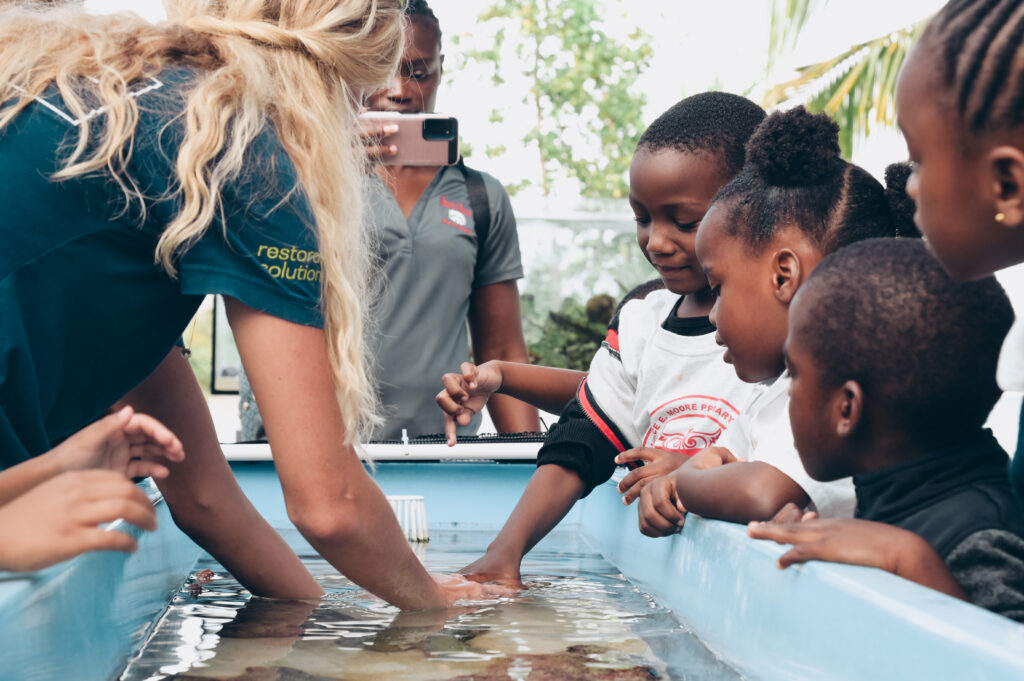
NAME
Gator Halpern
TITLE
Co-founder & President, Coral Vita
LOCATION
Bahamas
ABOUT
Gator Halpern is Co-founder and President of Coral Vita, a coral restoration initiative creating high-tech coral farms that grow resilient coral to restore dying reefs. In collaboration with marine institutes, Coral Vita employs breakthrough microfragmentation techniques to grow coral up to 50 times faster than natural rates. This approach strengthens the corals’ resilience to warming and acidifying oceans, allowing them to survive environmental stressors before being outplanted back onto damaged reefs.
Coral Vita’s farms operate as hubs for restoration, community education, and eco-tourism. By partnering with local and international organizations, Coral Vita is establishing new coral restoration projects in the Bahamas, UAE, Saudi Arabia, and beyond, and aims to provide millions of corals annually to bolster marine ecosystems around the world.
MOTIVATIONS
Growing up on the beaches and in the waves of San Diego, California, Gator has a deep connection to the ocean and the beauty of nature. This fascination with the natural world led him towards a career in environmental science, where he became a published researcher studying rapidly changing ecosystems from the mountains of the Andes, to the jungles of the Amazon, and the grasslands of Africa.
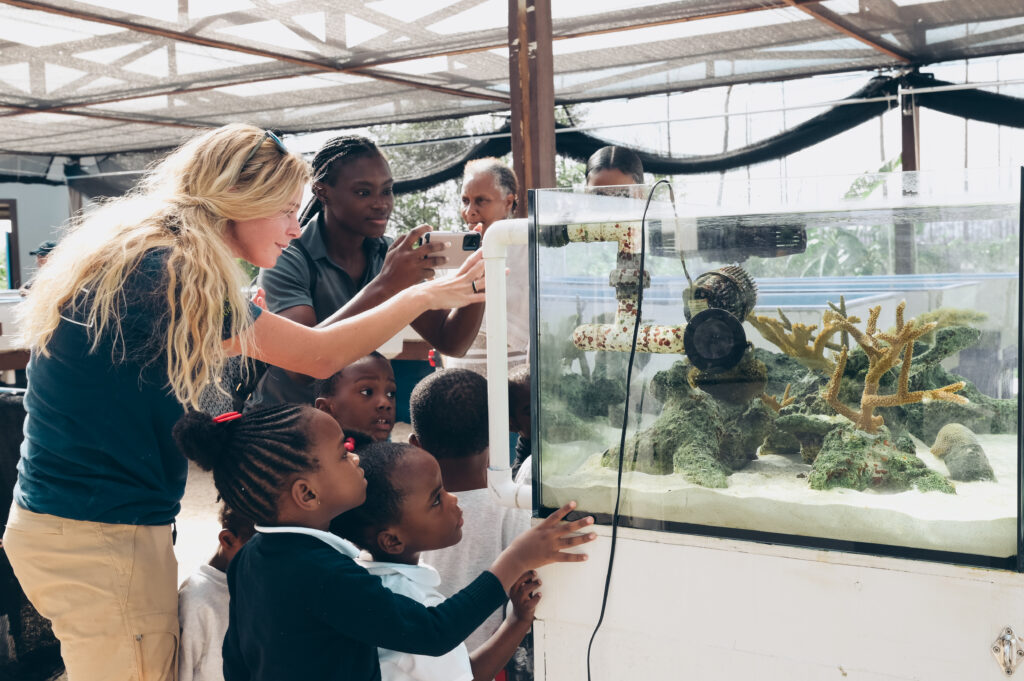
As he undertook a graduate degree at the Yale School of the Environment, Gator felt that writing papers about ecosystem decline wasn’t going to affect the state of the environment quickly enough, and so he decided to found a mission-driven start-up directly addressing one of the issues he cares deeply about. Coalescing around a shared love of the ocean and coral reefs with his co-founder, Sam Teicher, together they founded Coral Vita on their back porch in grad school, and now, almost a decade later, they are restoring reefs around the world.
IMPACTS
Before
While challenges persist, before Coral Vita’s work, coral reefs faced alarming degradation, impacting biodiversity and local economies:
Reefs in the Bahamas and other regions are in a critical state due to rising ocean temperatures and acidification, threatening marine ecosystems and the local communities depending on them. Traditional reef restoration methods struggled to keep up with the pace of damage, and corals grew too slowly to make a significant impact on degraded reefs. Without a scalable coral farming system, there was no sustainable source of resilient coral to support ongoing restoration needs.After
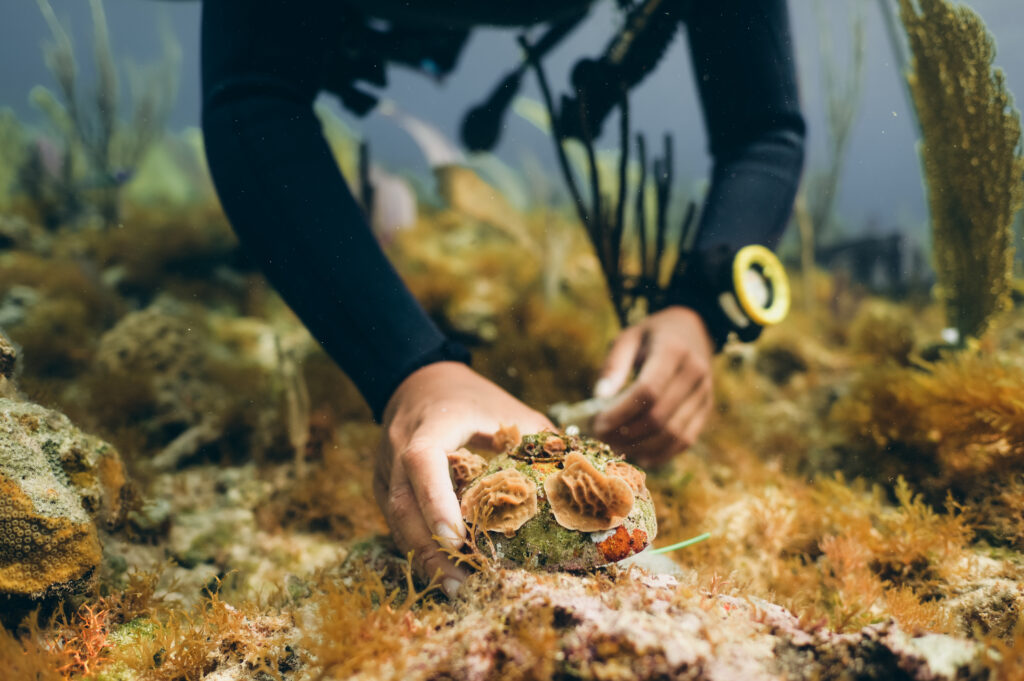
Since its founding, Coral Vita has made significant leaps in coral reef restoration:
The Coral Vita team has planted over 20,000 corals across multiple reefs, successfully restoring sections of damaged reefs and working to expand operations beyond the Bahamas, including new partnerships in the Middle East. Through innovative coral production techniques, Coral Vita’s farms grow corals with scalable technologies so that they can make large-scale restoration viable and cost-effective. The team has launched an operational model that doubles Coral Vita’s impact, supported by a clear strategic plan to increase restored corals, advance conservation finance opportunities, and support the local communities where they work.GOALS
Coral Vita is developing a network of reef restoration hubs around the world, with each hub capable of supplying restoration projects around the region with diverse and resilient corals to plant back into the reef. In addition to being coral production centres, Coral Vita’s farms also function as education centres for the local community, research hubs for coral resilience, and tourism attractions for the local economy.
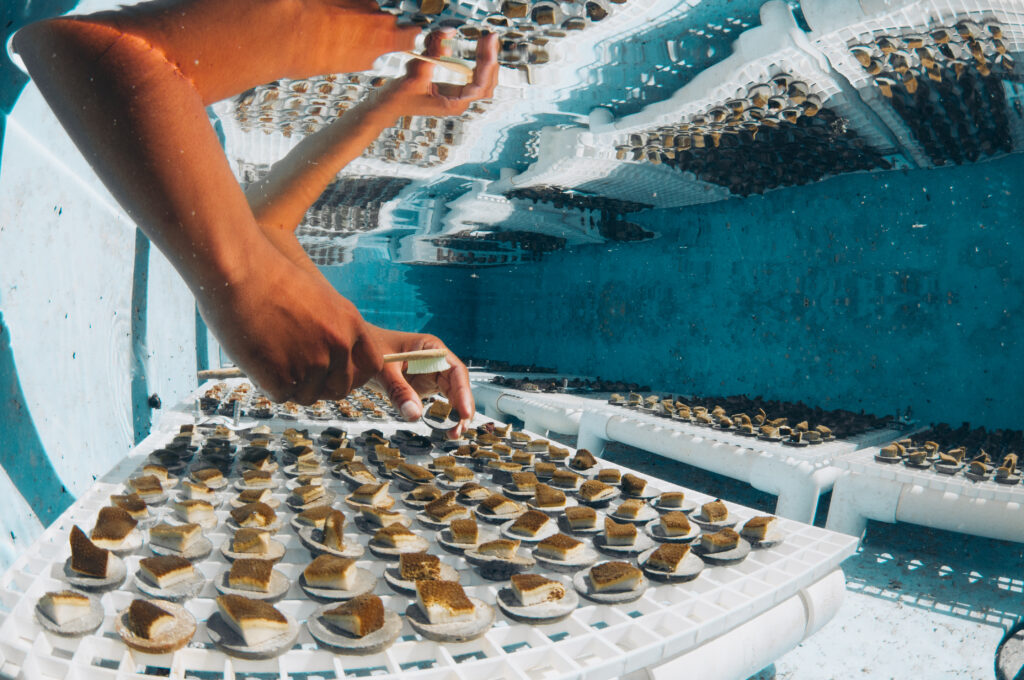
“The best thing we can do for coral reefs is not to restore them, it’s to stop killing them in the first place, and the challenge of sustaining our world’s coral reefs gets harder and harder with each year that our society continues to not act to reduce the causes of climate change. Reef restoration is needed now more than ever, but we need to work simultaneously to urgently address the reality of the climate crisis,” explains Gator.
GATOR’S ADVICE
“Growing a start-up in general is hard, but creating a company in the relatively new field of environmental restoration is even more challenging. People will tell you lots of reasons why it won’t work, why no one really pays for restoration, why it’s too hard of a problem to solve. I’ve found that through all of that perseverance is the key to success. There will be tough days and very low lows, and you have to dust yourself off and keep going to enjoy the successes. And remember, even when times are tough, we’re working to help heal the earth, to do work that is worthwhile and meaningful.”
HOW YOU CAN HELP
Coral Vita is leading the charge in coral restoration, using innovative techniques to combat the effects of climate change on marine ecosystems. Here’s how Gator says you can support:
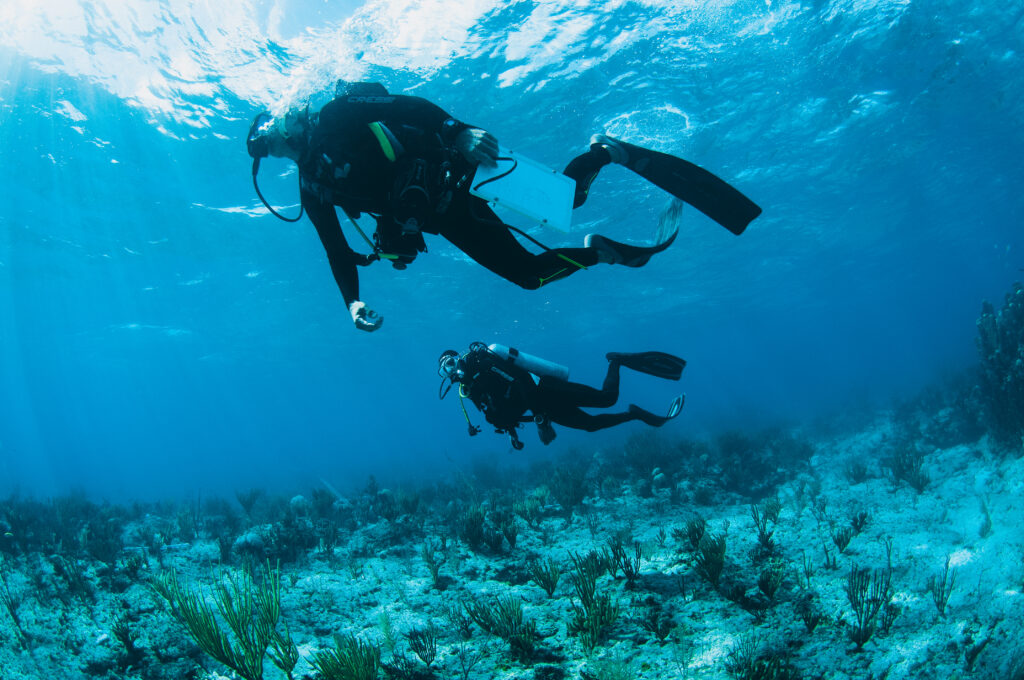
Image: Coral Vita. School children experiencing our touch tank and interacting with marine life possibly for the first time.
Image: Coral Vita: General Technician, Annabelle Purvis, showing school children one of our aquariums in our Education Center.
Image: Coral Vita. An outplanted Lettuce coral fusion cookie (Agaricia agaracities)
Image: Coral Vita: Coral microfragments growing in our Grand Bahama coral farm. Every so often coral technicians clean the fragment plugs and other aquaculture materials in the tanks to remove macro algae.
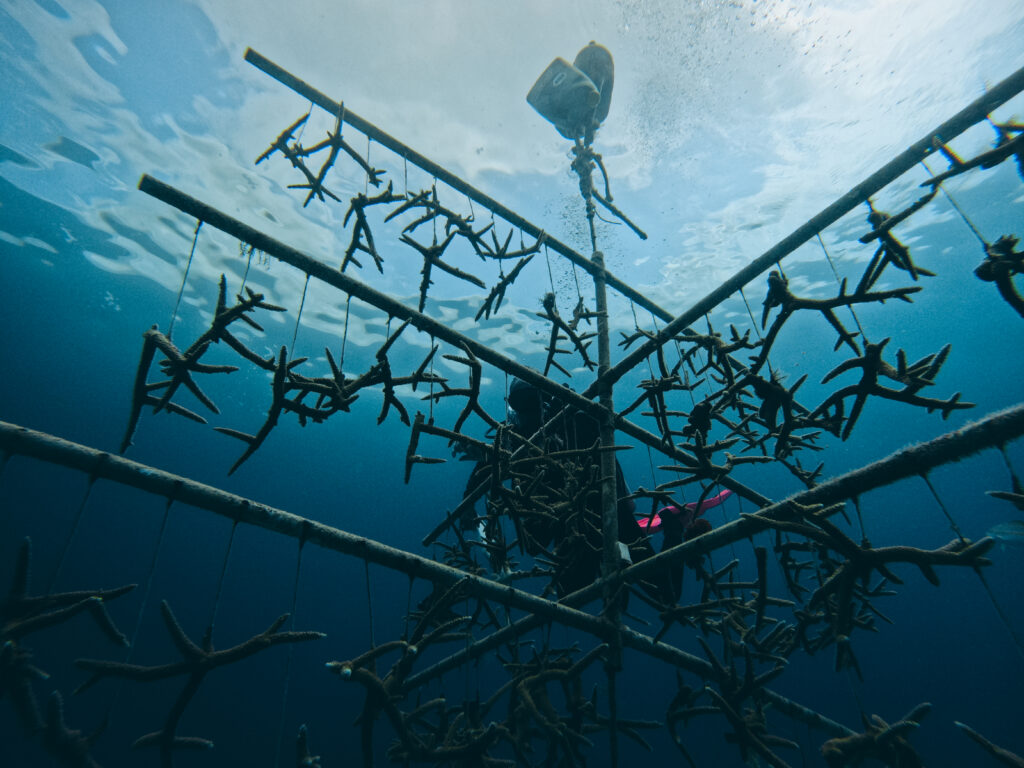
Image: Coral Vita. Technician Oshiko Riley
Meet Dr. Allen Hershkowitz, whose work is transforming how sports and culture can contribute to a more sustainable world. As the environmental adviser to the New York Yankees, NBA, and Broadway, Allen is helping iconic institutions engage millions in the climate conversation, setting new standards for environmental action in these influential spaces.
Meet Rajesh Shah, Managing Trustee of VIKAS Centre for Development, championing community-led climate resilience through the Great Green Wall of Gujarat. Rajesh’s initiative empowers marginalized communities to restore coastal ecosystems while creating sustainable livelihoods.
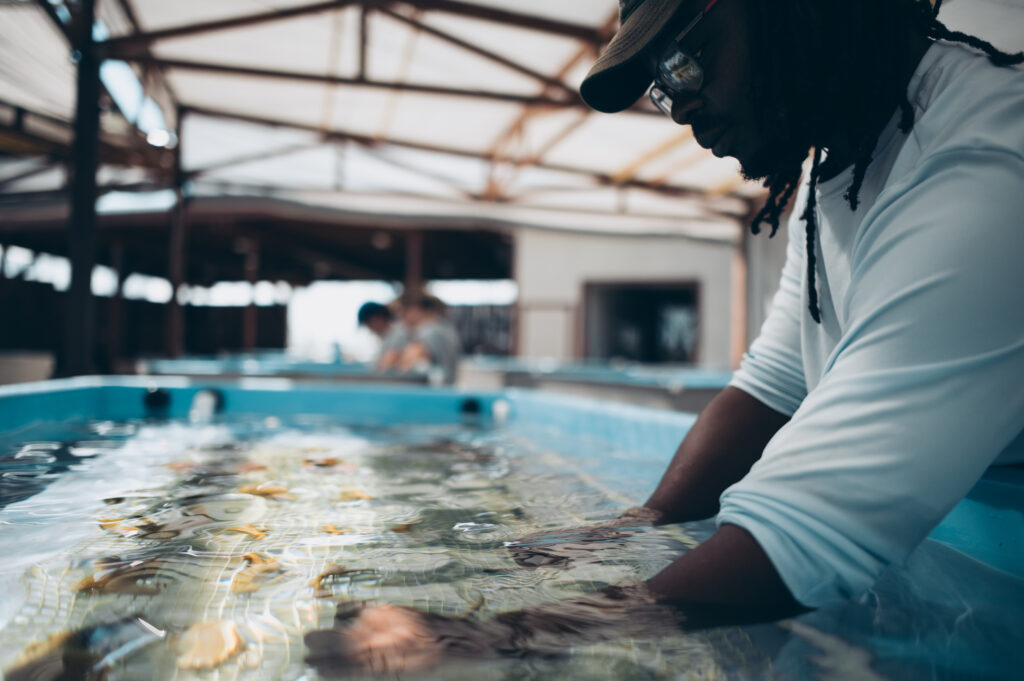
Meet Deepa Lama, Co-founder and President of Kalpavaatika Society Nepal, who is championing urban sustainability by transforming kitchen waste into compost and using rooftops for farming in Kathmandu. Her project, “Enhancing Urban Sustainability through Nature-based Solutions,” empowers over 500 community members to address waste management and food security challenges by composting organic waste and cultivating rooftop gardens.
VIEW MORE









































